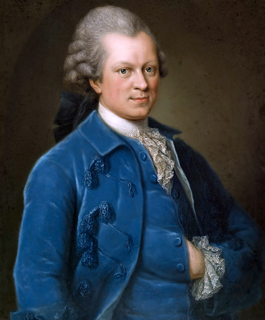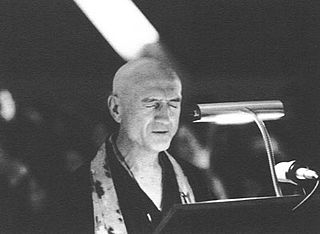A Quote by Sarah Fielding
I know not whether it would be too bold an assertion to say that candor makes capacity.... But in order to try the truth of any observation relating to the mind, the easiest method is to illustrate it by outward objects. If, for instance, a man was to sweat and labor all the days of his life to fill a chest which was already full, the absurdity of his vain endeavor would be glaring. In the same manner, when the human mind is filled and stuffed with notions brought thither by fallacious inclinations, there is no room for truth to enter: candor being banished, passions alone bear the sway.
Quote Topics
Absurdity
Alone
Any
Assertion
Banished
Bear
Being
Bold
Brought
Candor
Capacity
Chest
Days
Easiest
Endeavor
Enter
Fill
Filled
Full
His
Human
Human Mind
Illustrate
Instance
Know
Labor
Life
Makes
Man
Manner
Method
Mind
Notions
Objects
Observation
Order
Outward
Passions
Relating
Room
Same
Say
Stuffed
Sway
Sweat
Too
Truth
Try
Vain
Whether
Which
Would
Would Be
Related Quotes
[I]f a man bred to the seafaring life, and accustomed to think and talk only of matters relating to navigation, enters into discourse upon any other subject; it is well known, that the language and the notions proper to his own profession are infused into every subject, and all things are measured by the rules of navigation: and if he should take it into his head to philosophize concerning the faculties of the mind, it cannot be doubted, but he would draw his notions from the fabric of the ship, and would find in the mind, sails, masts, rudder, and compass.
At the very outset I have to tell you that truth is what it is. You cannot mold it, you cannot change it. It is always the same. It has been the same, it is the same, it will be the same. But to say that we know the truth and that we have the truth is really a self-deception. If you had known the absolute truth there would have been no problems and everybody would have said the same thing. There would be no discussions, no arguments, no fights and wars. But when we don't know the absolute truth then we can find out our own mental conceptions as the truth. But this mind is so limited.
It is an absolutely vain endeavor to attempt to reconstruct or even comprehend the nature of a human being by simply knowing the forces which have acted upon him. However deeply we should like to penetrate, however close we seem to be drawing to truth, one unknown quantity eludes us: man's primordial energy, his original self, that personality which was given him with the gift of life itself. On it rests man's true freedom; it alone determines his real character.
The true value of man is not determined by his possession, supposed or real, of Truth, but rather by his sincere exertion to get to the Truth. It is not possession of Truth by which he extends his powers and in which his ever-growing perfectability is to be found. Possession makes one passive, indolent and proud. If God were to hold all Truth concealed in his right hand, and in his left only the steady and diligent drive for Truth, albeit with the proviso that I would always and forever err in the process, and to offer me the choice, I would with all humility take the left hand.
Error is a supposition that pleasure and pain, that intelligence, substance, life, are existent in matter. Error is neither Mind nor one of Mind's faculties. Error is the contradiction of Truth. Error is a belief without understanding. Error is unreal because untrue. It is that which stemma to be and is not. If error were true, its truth would be error, and we should have a self-evident absurdity -namely, erroneous truth. Thus we should continue to lose the standard of Truth.
For the ordinary man, whose mind is a checkerboard of crisscrossing reflections, opinions, and prejudices, bare attention is virtually impossible; his life is thus centered not in reality itself but in his ideas of it. By focusing the mind wholly on each objects and every action, zazen strips it of extraneous thoughts and allows us to enter into a full rapport with life.
Without Christ, sciences in every department are vain....The man who knows not God is vain, though he should be conversant with every branch of learning. Nay more, we may affirm this too with truth, that these choice gifts of God -- expertness of mind, acuteness of judgment, liberal sciences, and acquaintance with languages, are in a manner profaned in every instance in which they fall to the lot of wicked men.
What the working man sells is not directly his Labor, but his Laboring Power, the temporary disposal of which he makes over to the capitalist. This is so much the case that I do not know whether by the English Law, but certainly by some Continental Laws, the maximum time is fixed for which a man is allowed to sell his laboring power. If allowed to do so for any indefinite period whatever, slavery would be immediately restored. Such a sale, if it comprised his lifetime, for example, would make him at once the lifelong slave of his employer.
It is not given to man to know the whole Truth. His duty lies in living up to the truth as he sees it, and in doing so, to resort to the purest means, i.e., to non-violence. God alone knows absolute truth. Therefore, I have often said, Truth is God. It follows that man, a finite being, cannot know absolute truth. Nobody in this world possesses absolute truth. This is God's attribute alone. Relative truth is all we know. Therefore, we can only follow the truth as we see it. Such pursuit of truth cannot lead anyone astray.
The objects of a financier are, then, to secure an ample revenue; to impose it with judgment and equality; to employ it economically; and, when necessity obliges him to make use of credit, to secure its foundations in that instance, and for ever, by the clearness and candor of his proceedings, the exactness of his calculations, and the solidity of his funds.
The master in the art of living makes little distinction between his work and his play, his labor and his leisure, his mind and his body, his information and his recreation, his love and his religion. He hardly knows which is which. He simply pursues his vision of excellence at whatever he does, leaving others to decide whether he is working or playing. To him he's always doing both.
My children, mark me. I pray you. Know! God loves my soul so much that his very life and being depend upon his loving me, whether he would or no. To stop God loving me would be to rob him of his Godhood; for God is love no less than he is truth; as he is good, so is he love as well. It is the absolute truth, as God lives... If anyone would ask me what God is, I should answer: God is love, and so altogether lovely that creatures all with one accord essay to love his loveliness, whether they do so knowingly or unbeknownst, in joy or sorrow.







































